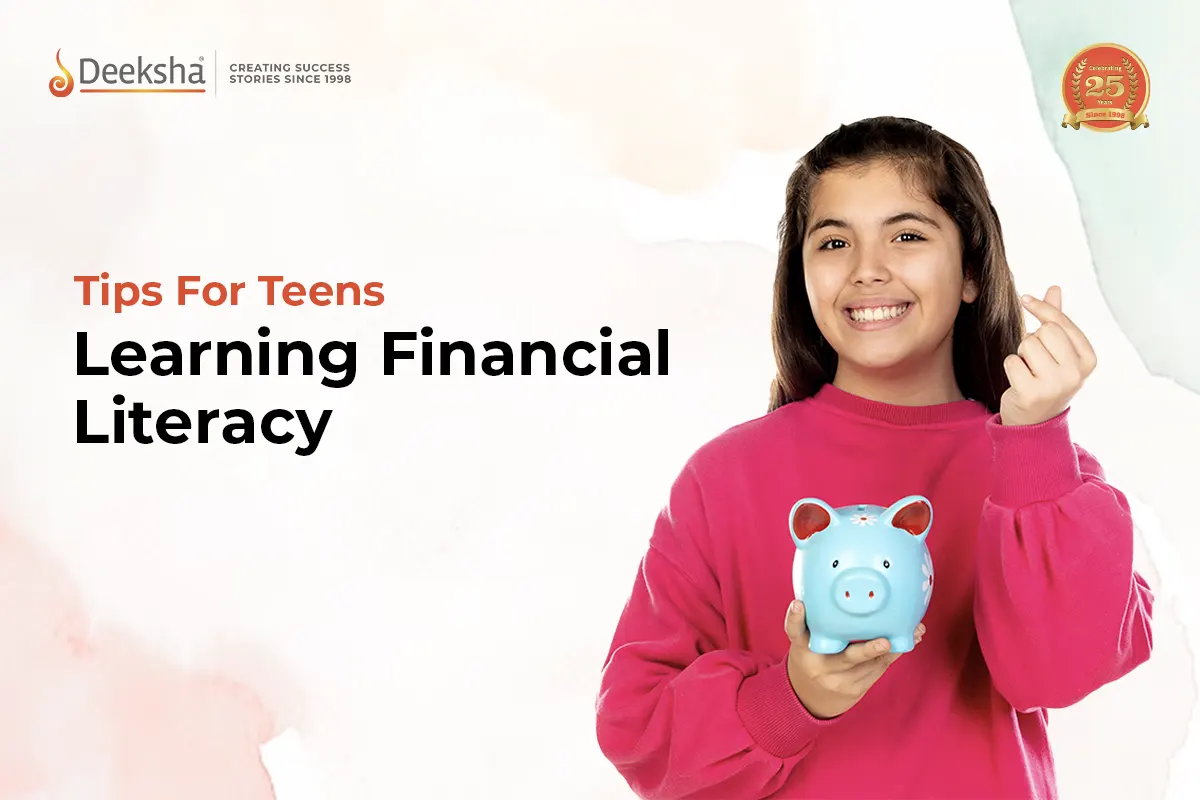Financial literacy is an essential life skill that is often overlooked in the traditional educational journey of teenagers. As they stand on the cusp of adulthood, understanding the basics of personal finance—from budgeting and saving to investing and making informed spending decisions—is crucial. It’s not just about money; it’s about making wise choices that can shape their future financial stability and security.
For teens, financial literacy lays the groundwork for independent living, providing the tools they need to navigate the complexities of the modern financial world. It empowers them to take charge of their money, avoid debt traps, and build a solid foundation for their later years. As the global economy evolves and financial products become more complex, the importance of financial literacy only grows stronger.
It’s not just about the immediate benefits, either. The impact of financial knowledge on long-term well-being cannot be overstated. Teens equipped with financial education are more likely to make savvy decisions, from choosing student loans and credit cards to saving for retirement. Therefore, instilling financial literacy at a young age is an investment in a teen’s future—a gift of lifelong relevance that parents and educators can provide to set them up for a successful, financially healthy life.
Understanding Financial Literacy
Financial literacy for teenagers involves a comprehensive understanding of how money works in the real world. It’s the set of skills and knowledge that allows an individual to make informed and effective decisions with all of their financial resources. For teens, this includes understanding everyday financial concepts such as saving, budgeting, and the principles of earning interest, as well as more complex ideas like investment, credit, and taxes.
The bedrock of financial literacy is budgeting—the ability to plan and control spending in order to save or invest for future goals. Teens should learn to create and manage a budget, which serves as a financial blueprint for making spending decisions with confidence and a clear vision of their goals.
Saving is another critical financial skill, which not only encourages discipline but also prepares teens for future financial responsibilities and emergencies. Understanding the power of compound interest and the importance of saving early can be particularly motivating for setting aside money regularly.
Equally important is the concept of credit. Teens must understand how credit works, the importance of maintaining a good credit score, and the consequences of mismanaging credit cards or loans.
Investment basics, including the different types of investments and the risk-reward concept, can introduce teens to the idea of making their money work for them over time.
Lastly, a basic understanding of taxes prepares teens for one of life’s certainties and the role taxation plays in personal income and purchasing power.
Developing these financial skills is critical for teens to handle money effectively, avoid debt, and build a strong foundation for their financial future. These competencies pave the way for financial independence and the ability to navigate life’s financial challenges with confidence.
The Benefits of Financial Literacy for Teens
The benefits of financial literacy for teens extend far beyond the basic ability to balance a checkbook. It fosters a sense of personal responsibility, instilling a strong foundation for making sound financial decisions. With these skills, teens are better equipped to achieve financial independence, giving them the confidence to manage their own money, set realistic financial goals, and work towards them diligently.
Early financial education is a critical stepping stone to adept money management in adulthood. It prepares young individuals to face the complexities of financial obligations and opportunities that come their way, from navigating student loans to investing in their first home or retirement plan. Teens who are financially literate are more likely to avoid common pitfalls like excessive debt and poor credit, instead embracing practices that promote wealth accumulation and financial security.
In essence, financial literacy is not just about managing money—it’s about shaping a future. Teens who learn these skills early are setting the stage for a financially responsible and empowered adult life, marked by informed decisions that support their personal and professional aspirations.
Debunking age-old myths
Here are ten common myths about money that teens may believe, which financial literacy efforts should aim to dispel:
- Myth: You need a lot of money to start saving or investing.
Truth: Even small amounts saved or invested consistently can grow over time due to compound interest. - Myth: Making a budget means you can’t have fun.
Truth: Budgeting helps you manage your money so you can afford to have fun without overspending. - Myth: Credit cards are free money.
Truth: Credit cards are loans that need to be paid back, often with high interest if not managed properly. - Myth: You don’t need to worry about retirement until you’re older.
Truth: The earlier you start saving for retirement, the more time your money has to grow. - Myth: Investing is only for rich people.
Truth: There are investment options for every budget, and starting small can lead to significant gains over time. - Myth: Carrying a balance on your credit card is good for your credit score.
Truth: Carrying a balance means paying interest; paying off the full balance monthly is often better for your credit score and finances. - Myth: Your income level is the biggest factor in achieving financial success.
Truth: How you manage your money is often more important than how much you make. - Myth: Financial planning is too complicated and not necessary at a young age.
Truth: Basic financial planning is straightforward and starting young gives you a significant advantage. - Myth: If I earn more, I’ll save more.
Truth: Without good money habits, people often spend more as they earn more, not necessarily saving more. - Myth: Money management is something you can’t control.
Truth: With the right education and tools, everyone can learn to control their financial situation.
Financial Literacy and Career Planning
Financial literacy plays a pivotal role in career planning and making informed decisions about education and its financing. Understanding the basics of personal finance empowers teenagers to assess the value of different educational paths and their potential return on investment. This knowledge is crucial when considering the long-term implications of investing in higher education, particularly in an era where the cost of education is rising.
A key aspect of financial literacy in the context of career planning is understanding the cost-benefit analysis of various educational choices. Teens equipped with financial knowledge can weigh the potential income from a chosen career against the cost of the necessary education and training. This helps in making more informed decisions about what degrees or certifications to pursue, which institutions offer the best value, and how these choices align with their career aspirations.
Financial literacy is essential in navigating the complexities of student loans, scholarships, and grants. Understanding interest rates, loan terms, and repayment schedules is critical for teens and their families to avoid excessive debt. It also helps in identifying and applying for scholarships and grants, which can significantly reduce the financial burden of higher education.
In addition, being financially literate aids in recognizing the importance of budgeting and saving for future educational expenses. It allows teens to start planning and saving early, possibly through part-time jobs or savings plans, reducing the reliance on loans.
Overall, financial literacy is a crucial tool in the arsenal of career planning. It not only aids teens in making prudent choices about their education and career paths but also prepares them to manage the financial aspects of their educational journey, setting them up for a more secure financial future.
Financial Literacy Test for Students
- How much have you saved so far?
A. I haven’t started saving yet
B. Less than ₹5,000
C. Between ₹5,000 to ₹10,000
D. More than ₹10,000 - How much do you spend per month eating outside?
A. More than ₹2,000
B. Between ₹1,000 to ₹2,000
C. Less than ₹1,000
D. I rarely eat out - How much do you spend on shopping online every month?
A. More than ₹3,000
B. Between ₹1,000 to ₹3,000
C. Less than ₹1,000
D. I seldom shop online - Do you track your daily expenses?
A. No, I don’t keep track
B. Sometimes
C. Yes, but only major expenses
D. Yes, I meticulously track all my expenses - How do you usually manage your money?
A. I spend it as I need without much planning
B. I plan a little but mostly spend spontaneously
C. I have a rough budget that I try to follow
D. I strictly adhere to a detailed budget - If you receive a cash gift of ₹5,000, what would you most likely do with it?
A. Spend it immediately on something I want
B. Save a part of it, spend the rest
C. Save it entirely
D. Invest it - Do you know what a credit score is?
A. No idea
B. Heard of it but not sure what it means
C. Have a basic understanding
D. Completely understand it - How often do you discuss financial planning with your parents or a guardian?
A. Never
B. Rarely
C. Occasionally
D. Frequently - Have you ever earned money from a part-time job, freelancing, or a similar activity?
A. No, I have never earned money
B. Yes, but very little
C. Yes, a moderate amount
D. Yes, a substantial amount - What is your approach to investing money?
A. I don’t think about investing at all
B. It’s something I’m interested in but haven’t started yet
C. I have made some small investments
D. I actively invest and manage my investments
Scoring Guide
- A = 1 point
- B = 2 points
- C = 3 points
- D = 4 points
Add up the points for each answer to get the total score. The higher the score, the better the financial literacy and money management skills. This test is a basic assessment and should be used as a guide to understand areas of financial knowledge and habits that may need improvement.
In conclusion, financial literacy is a crucial skill for teens, equipping them with the knowledge to make informed financial decisions. Understanding savings, spending, and investing principles sets the foundation for future financial stability. Encouraging teenagers to learn and apply these concepts is an investment in their financial independence and long-term well-being.
Table of Contents















Get Social